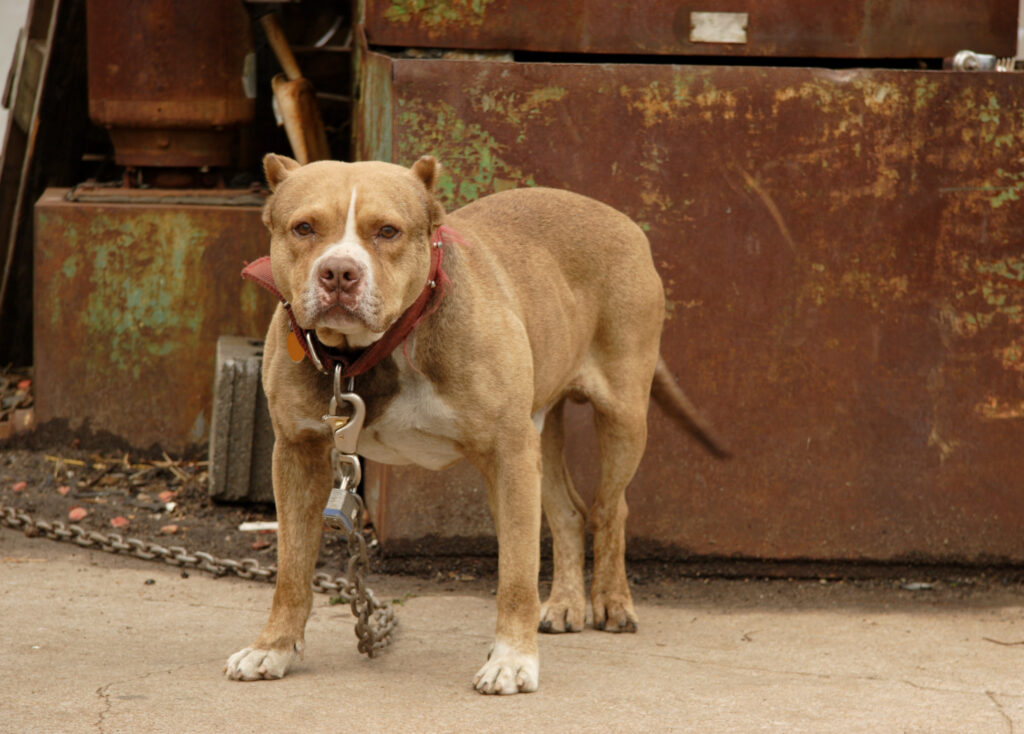No constitutional right too own a pit bull, federal court says, upholding a municipal ban in Iowa on the breed.
A federal court has upheld an Iowa city’s ban on pit bulls and dogs that look like pit bulls.
Since 2005, Council Bluffs has banned residents from owning “any dog that is an American Pit Bull Terrier, American Staffordshire Terrier, Staffordshire Bull Terrier, or any dog displaying the majority of physical traits” of one of those breeds. A group of dog owners sued, arguing that the ban violated their constitutional rights.
The dog owners argued that the ban violates their rights to substantive due process and equal protection and that it isn’t rationally related to legitimate government interests. But a federal district court sided with Council Bluffs, and now the U.S. Court of Appeals for the 8th Circuit has as well. The court concluded that the city did have rational reasons for the ban, since the dog owners could “not negate every conceivable basis for the Ordinance.”
This conclusion—while arguably sound from a legal standpoint—is still pretty unsatisfying from the standpoint of common sense.
Sure, the authorities have an interest in protecting people from dangerous animals. I don’t think many folks would object to a rule banning city dwellers from owning a lion. But pit bulls are hardly lions.
Pit bulls and pit bull mixes are not a universally dangerous dog, as the plaintiffs in this case argued. From the decision:
“They presented evidence from canine behavior experts and recent scientific studies about predicting a dog’s propensity to bite based on its breed. According to the dog owners, this evidence, viewed most favorably to them, negates every conceivable basis for the Ordinance by establishing: “(1) Pit Bull type dogs are no more or less dangerous than other breeds of dogs; (2) neither breed nor physical characteristics are predictive of a dog’s aggressiveness or propensity to bite; and (3) the city’s method of identifying dogs as Pit Bulls is inherently unreliable.””As for dangerousness, the dog owners argue that experts in canine genetics and behavior currently acknowledge that pit bulls are no more or less dangerous than similarly sized dogs of other breeds.”
The city countered that pit bulls made up a disproportionate amount of dog bites in year leading up to the ban—even though that may be explained by one or a few badly trained pit bulls, and needn’t necessarily indict all pit bulls and pit bull mixes.
The city also offered the underwhelming statistic that dog bites were down 25 percent since the ban had been enacted. That still leaves a lot of dog bites by other breeds—and yet the city has not moved to ban other dog breeds.
As to the plaintiffs’ claim that the city couldn’t judge a dog’s breed simply by its looks, the city countered with a study showing visual identification was accurate 15 percent of the time. That’s another pretty underwhelming statistic—but the court found it sufficient, writing that “this study affirms that visual identifications can, however imperfectly, identify a dog’s breed.”
Originally published by Reason Foundation. Republished with permission.
For more Rights, Justice, and Culture News.
